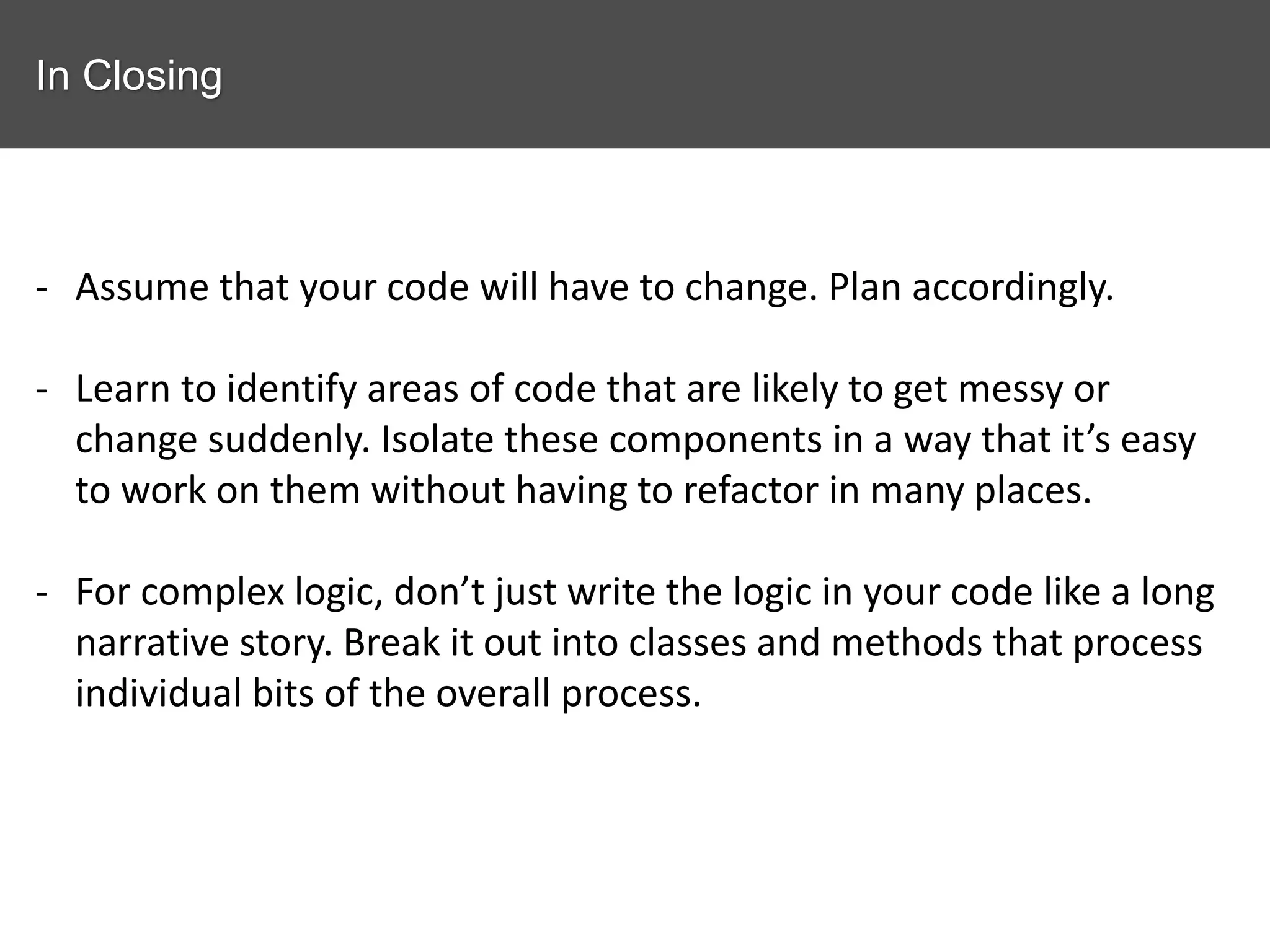The document provides guidelines for writing maintainable and scalable code, emphasizing the importance of clear naming conventions, proper exception handling, and utility functions. It advises against complex arguments and lengthy conditional statements, advocating for modular design through the use of classes and methods. The author encourages developers to anticipate changes and isolate components to facilitate easier updates and maintenance.


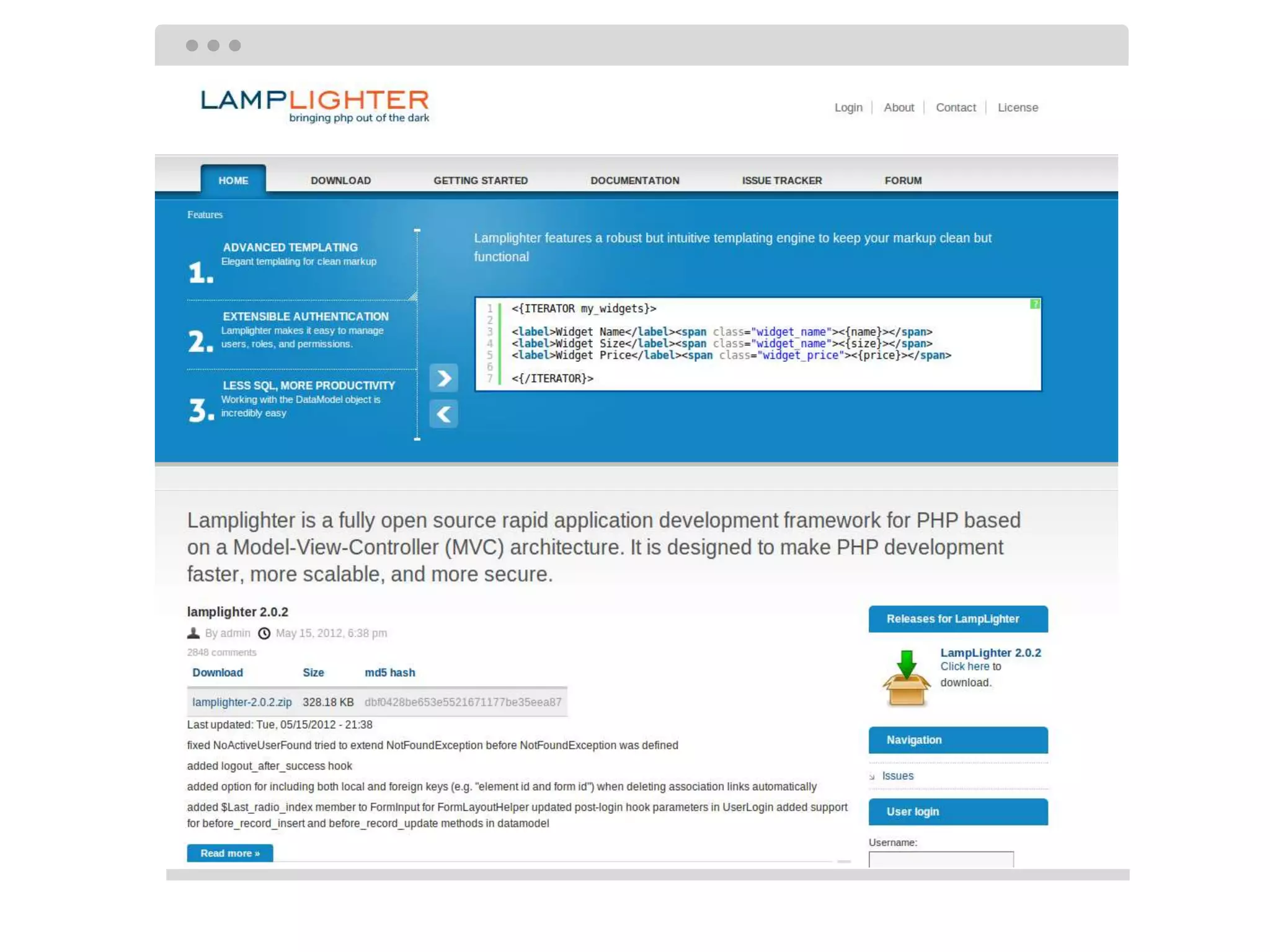



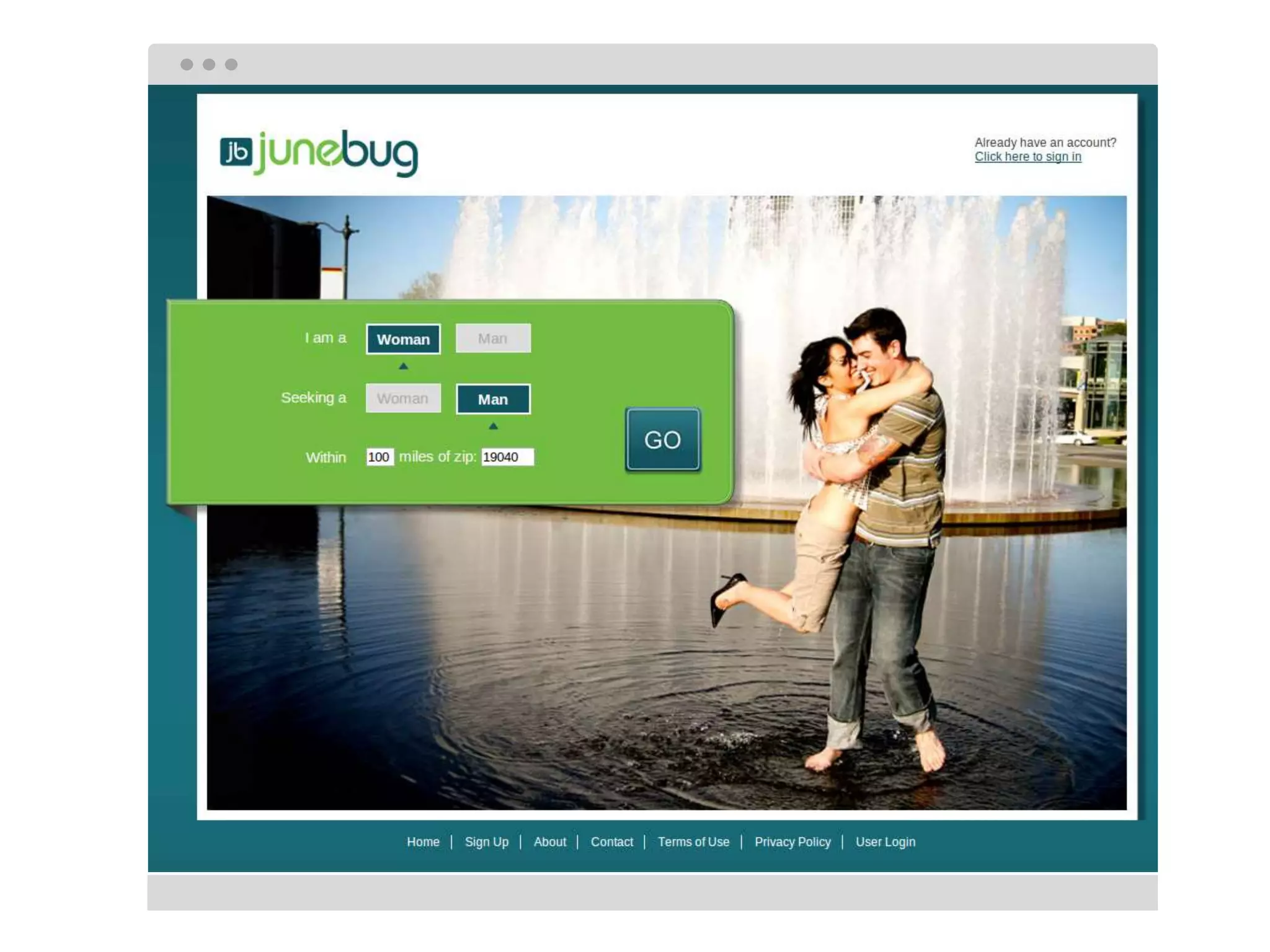


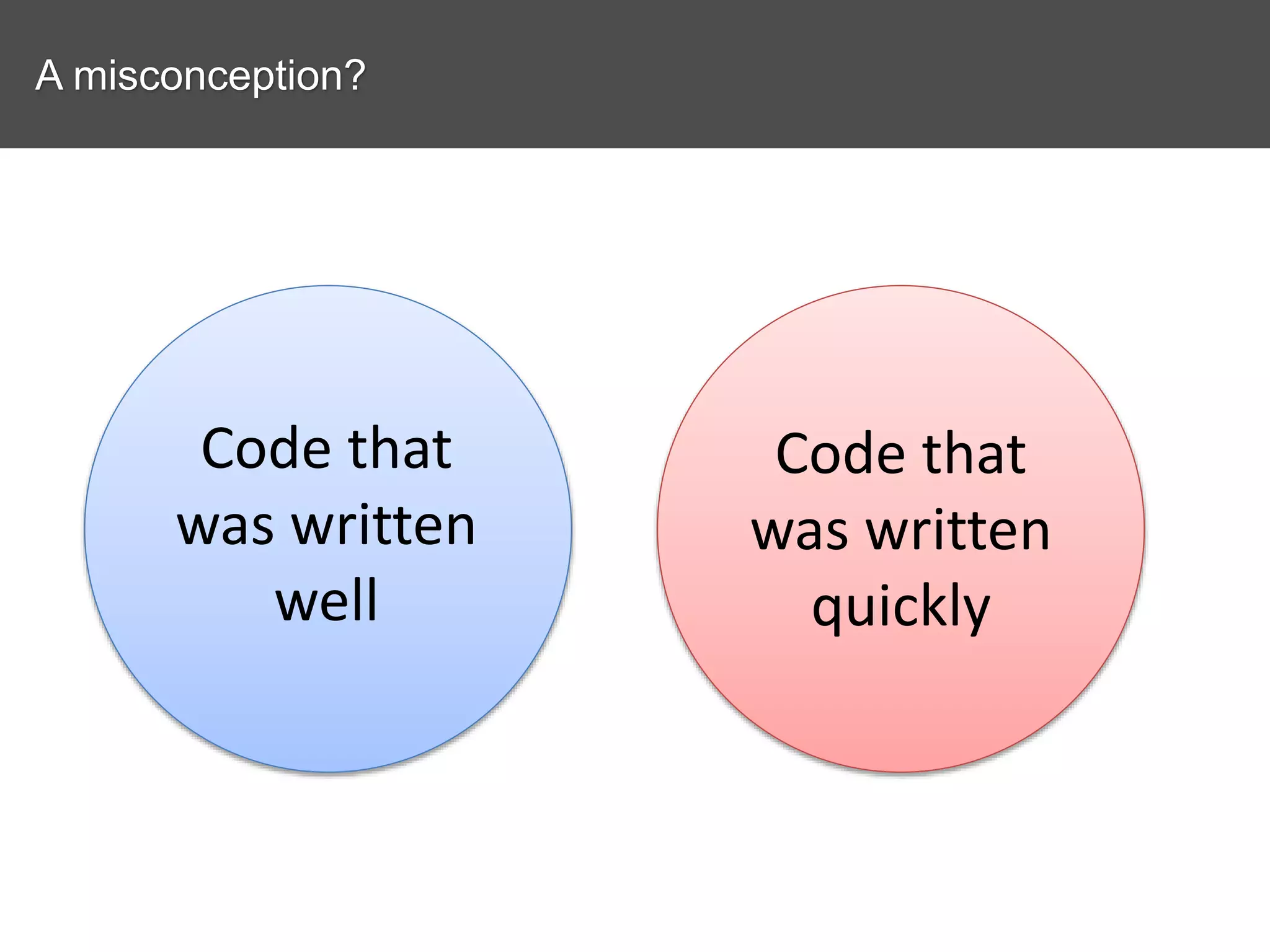

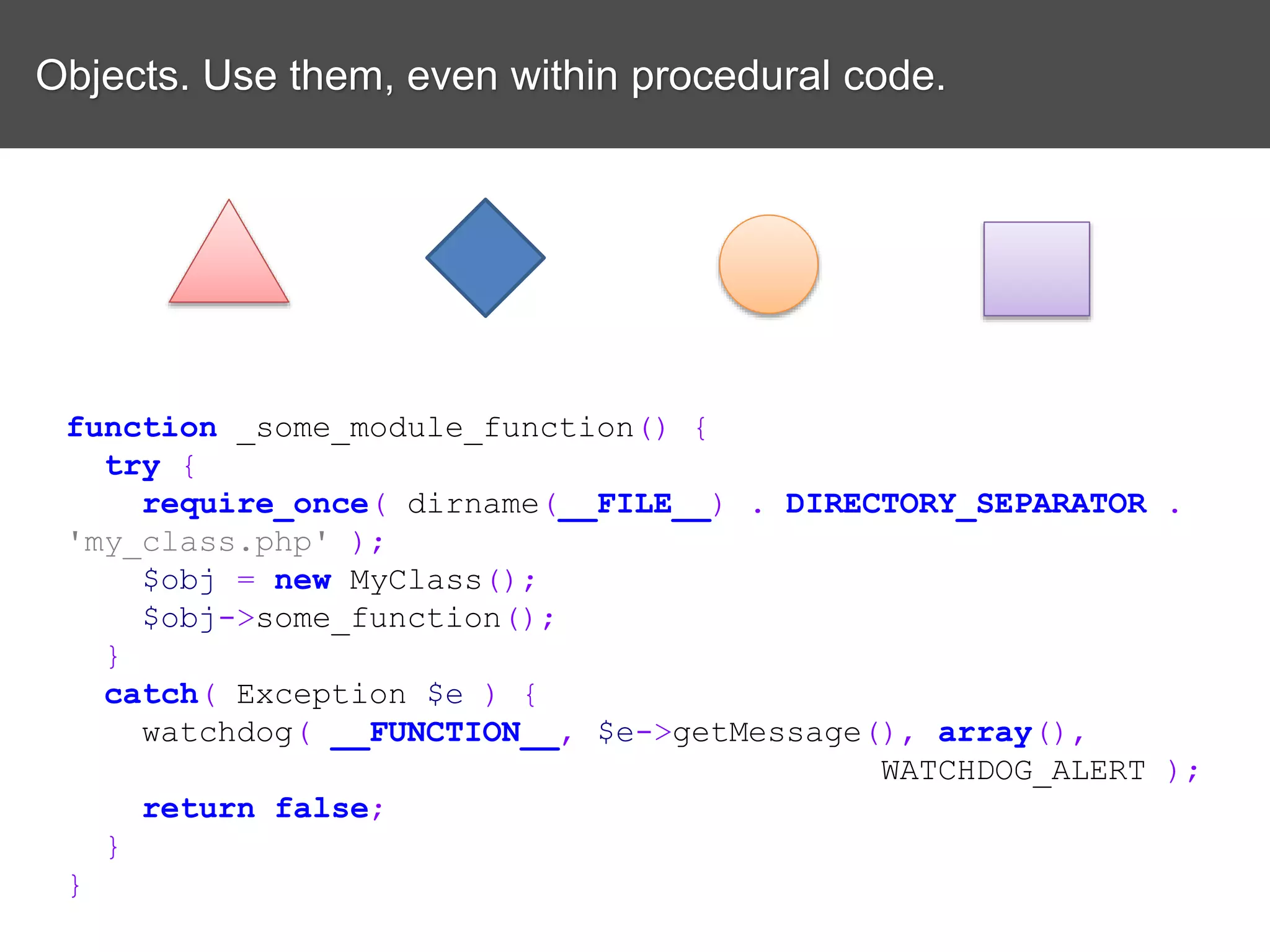
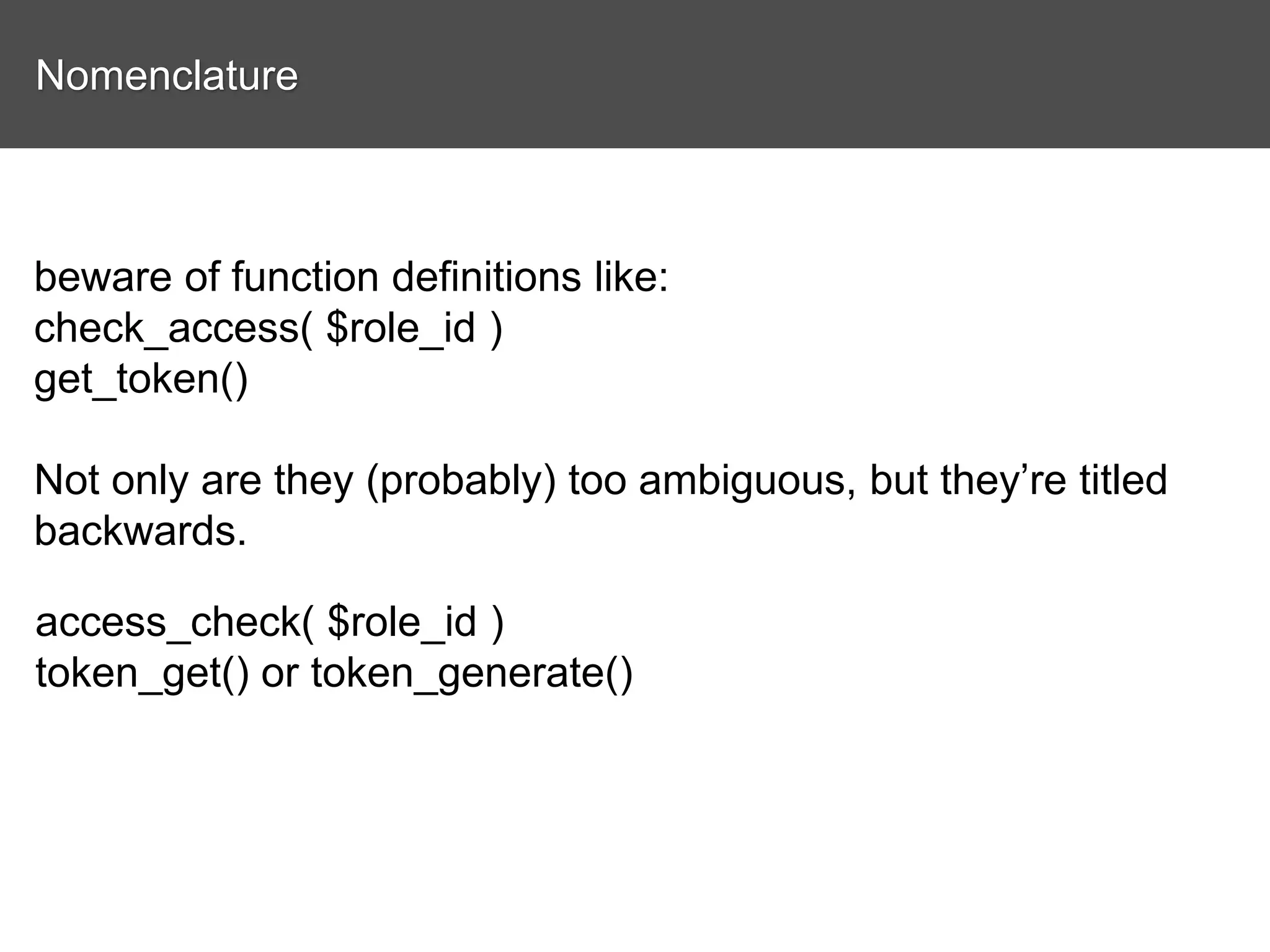
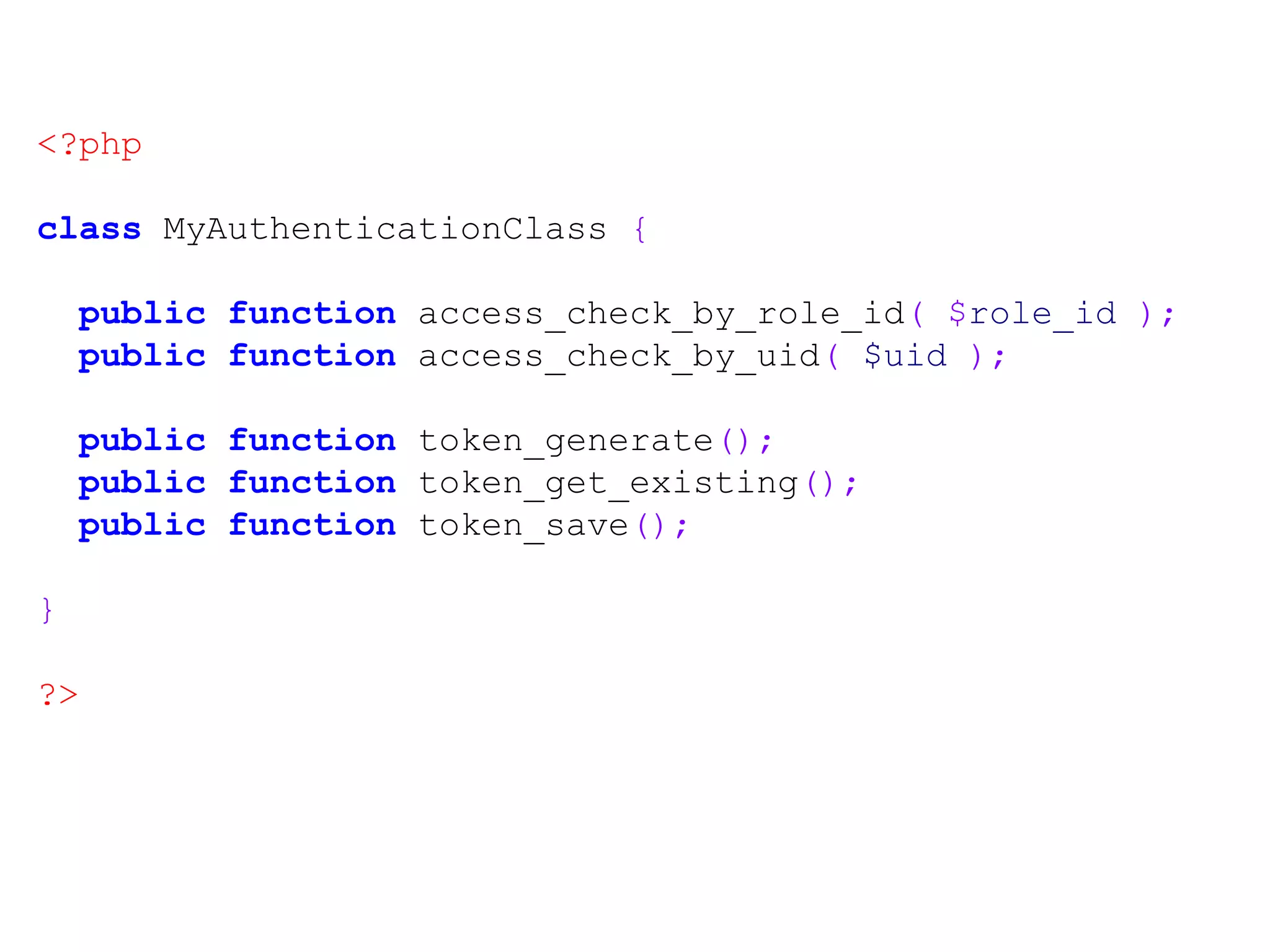
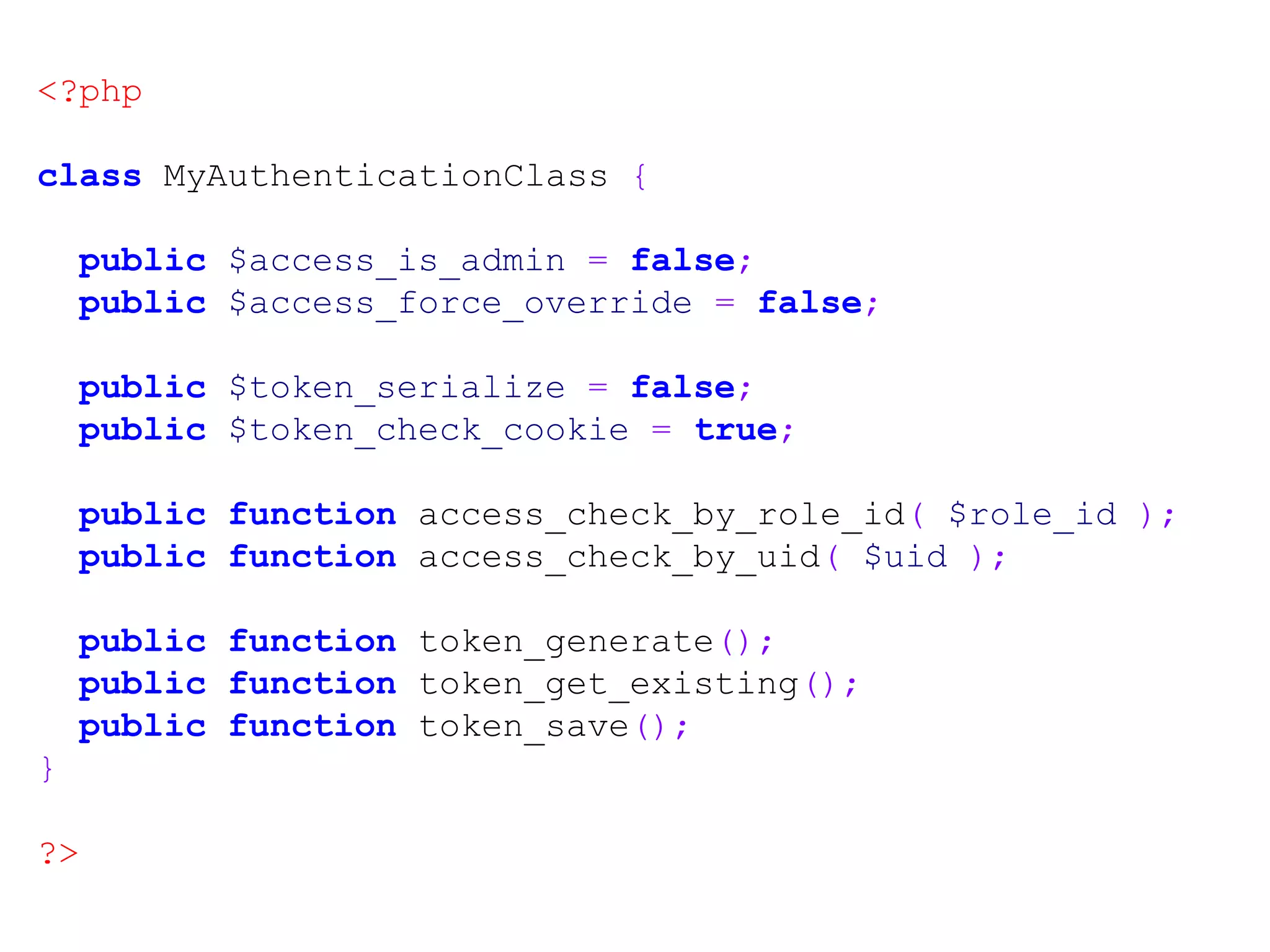
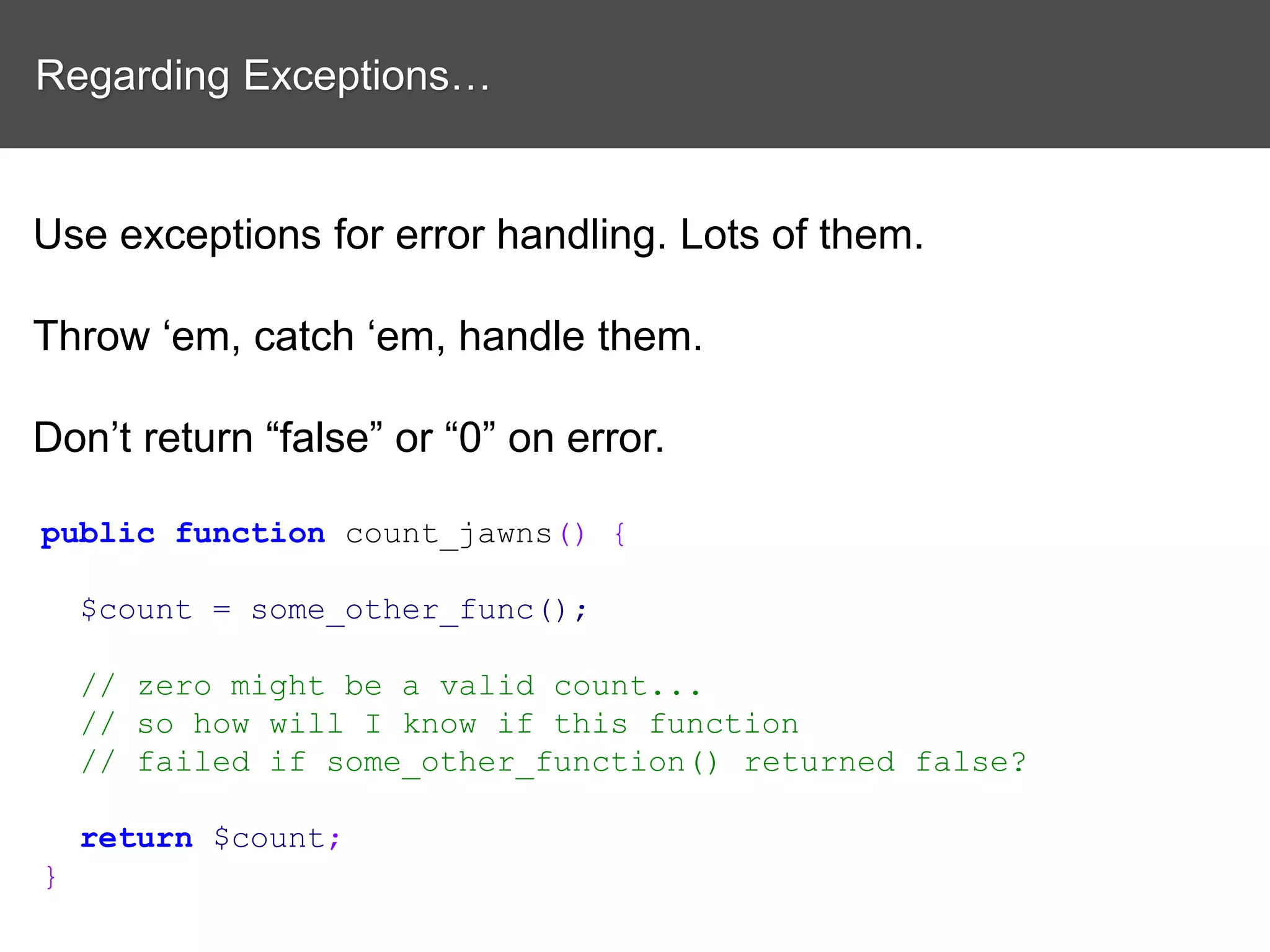
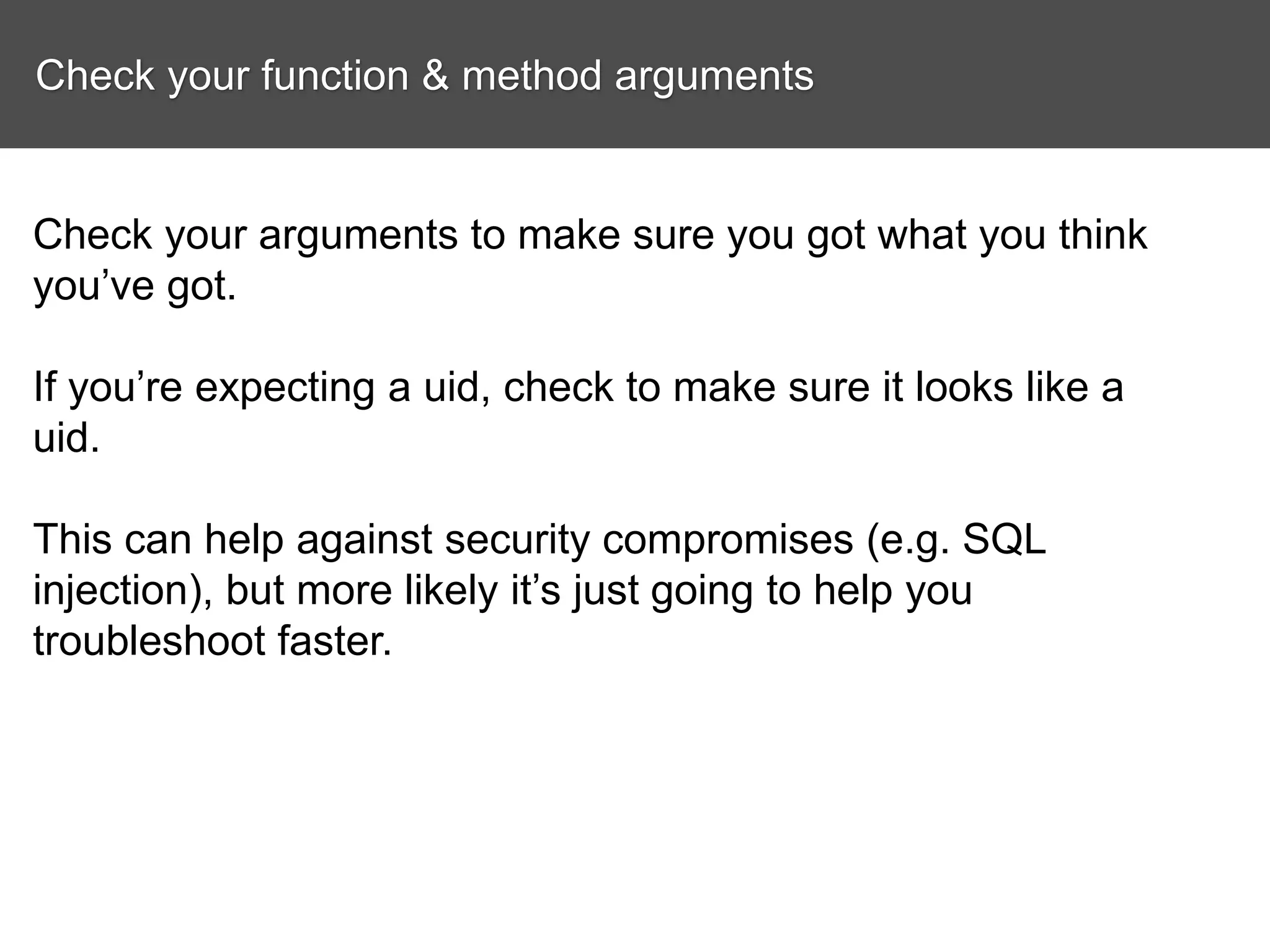
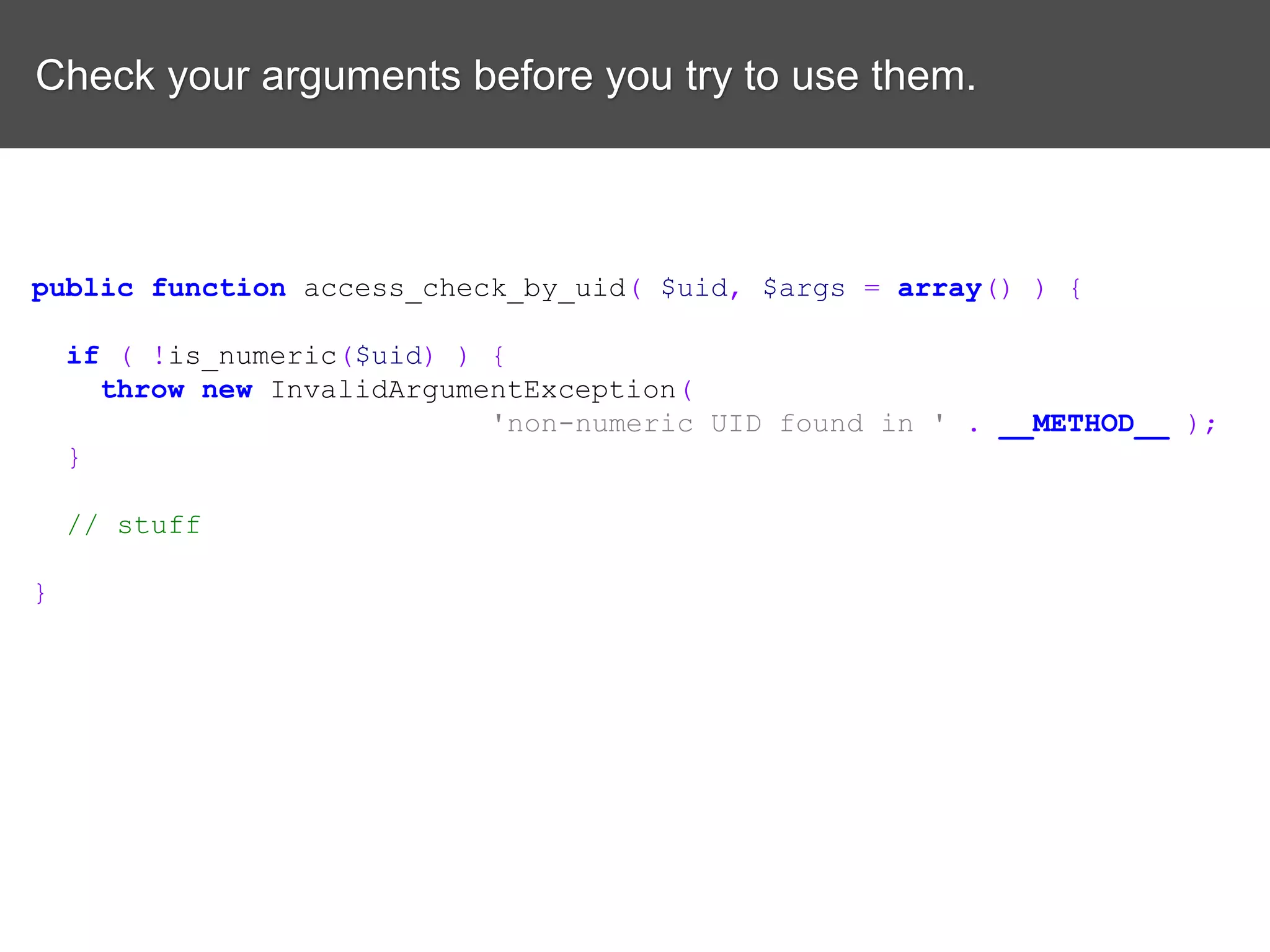
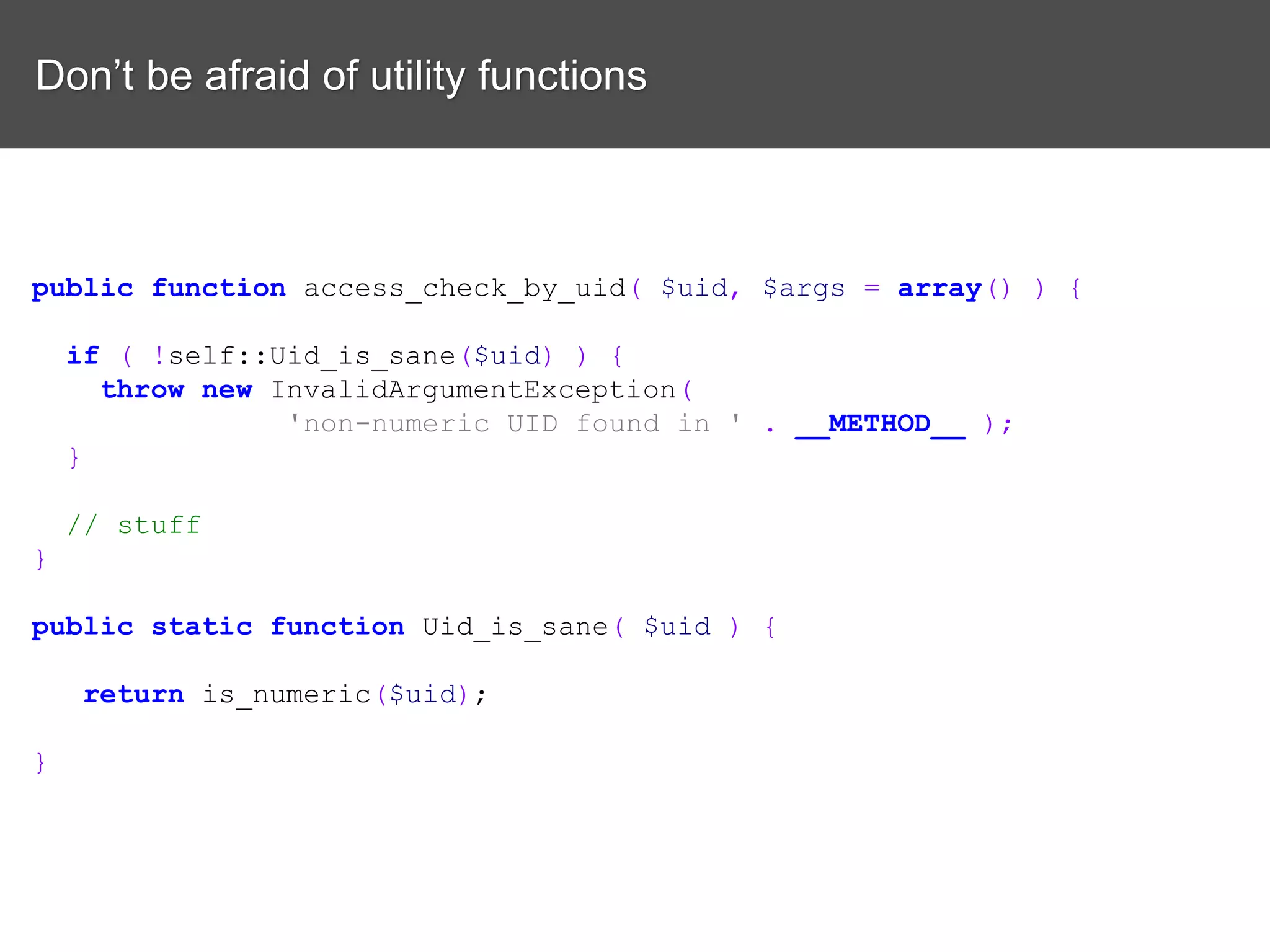
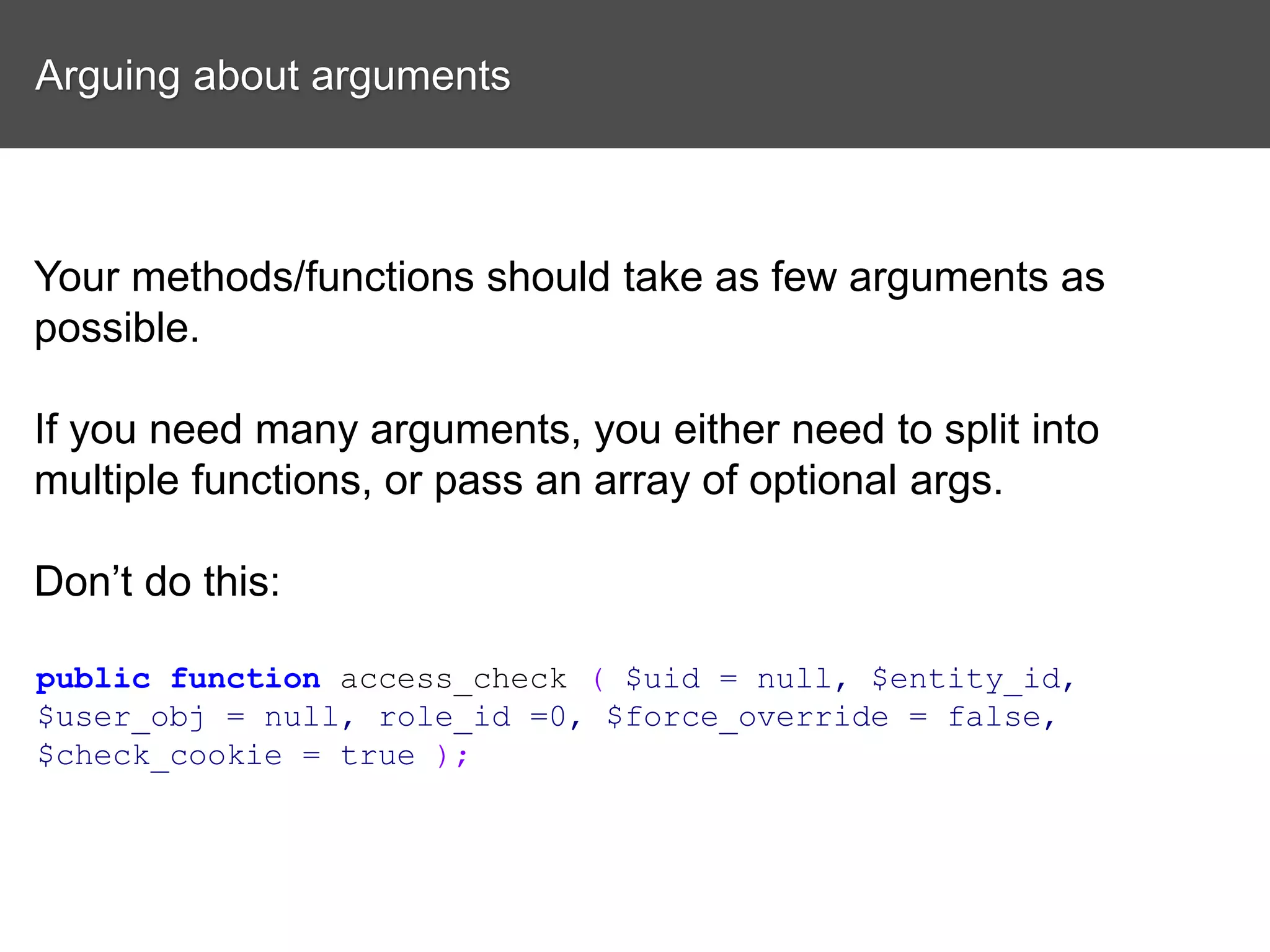
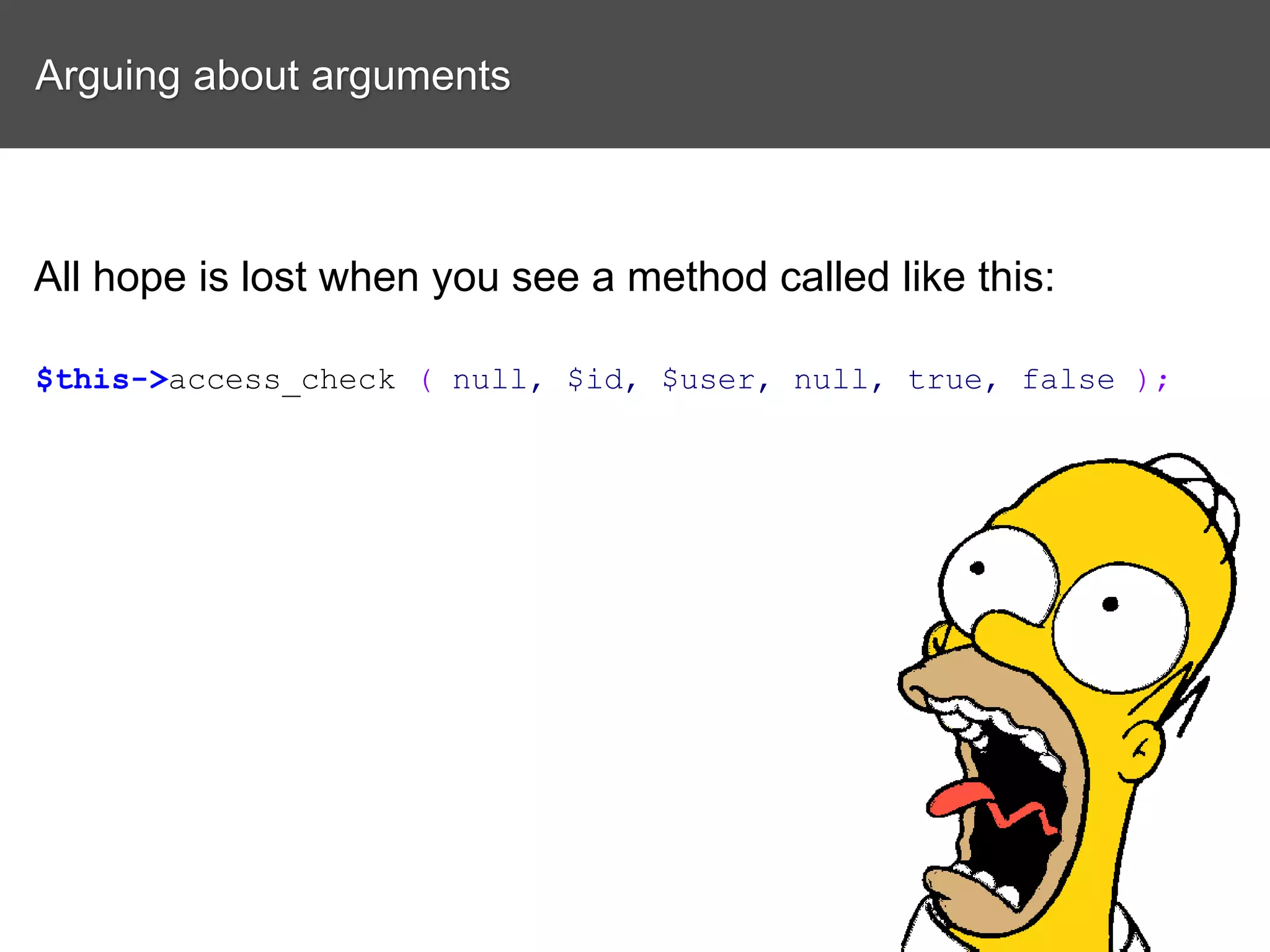
![Arguing about arguments public function access_check_by_uid( $uid, $entity_id, $args = array() ) { if ( !empty($args['force_override']) ) { //do something here } } public function access_check_by_role_id( $role_id, $entity_id, $args = array() ){ if ( !empty($args['force_override']) ) { //do something here } }](https://image.slidesharecdn.com/drupaldelphia2014-140913103509-phpapp02/75/Coding-for-Scale-and-Sanity-22-2048.jpg)
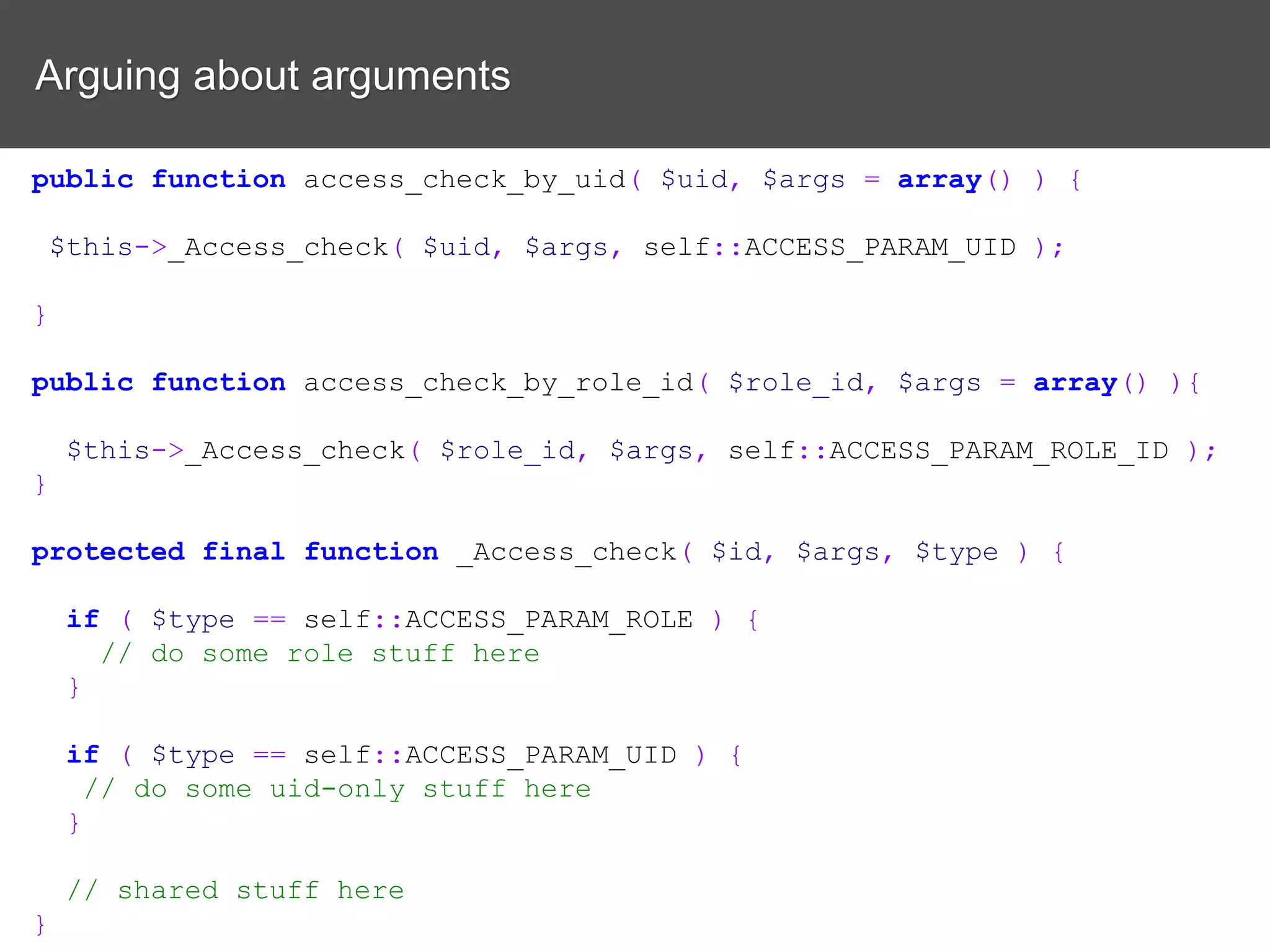
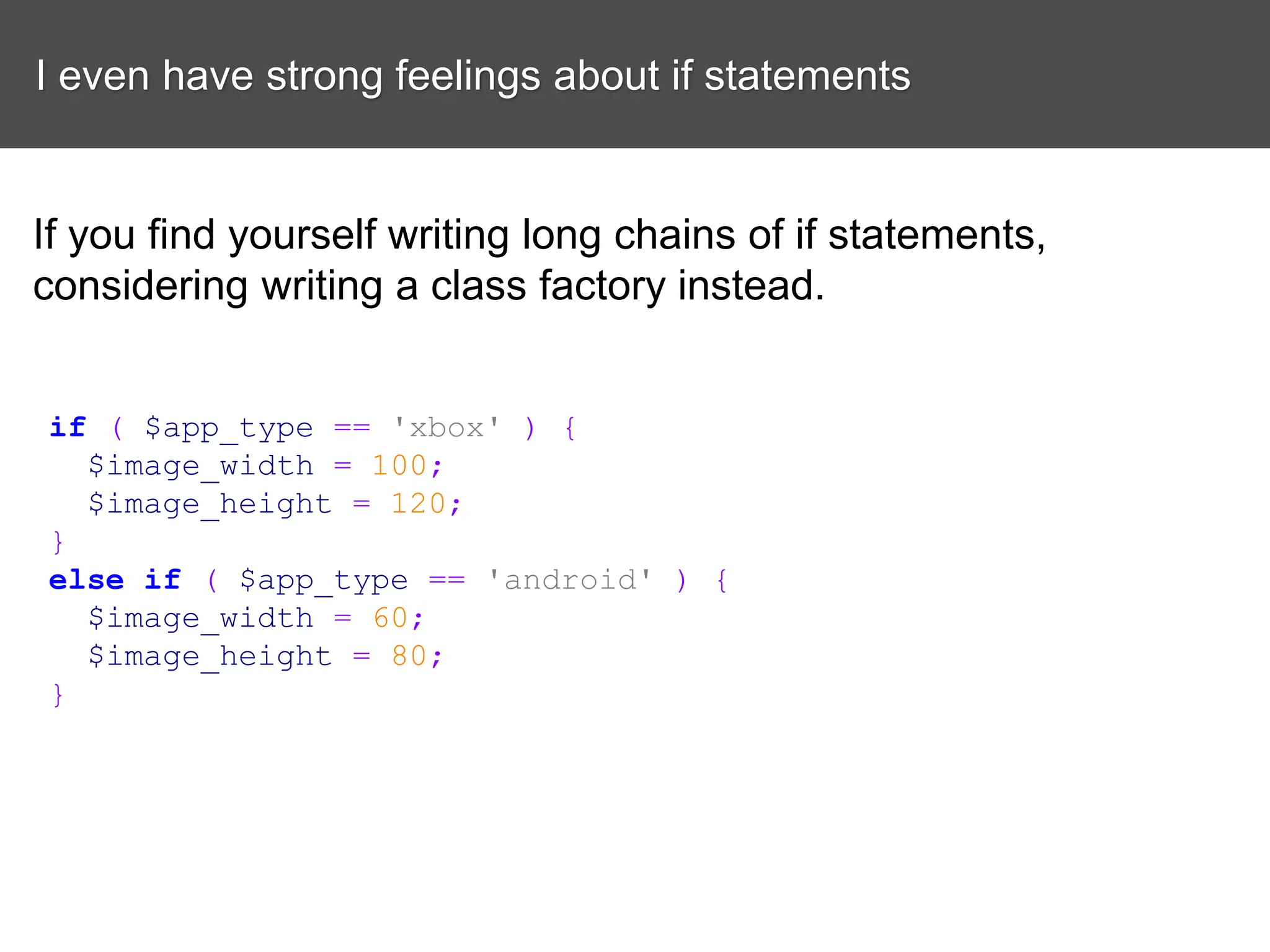
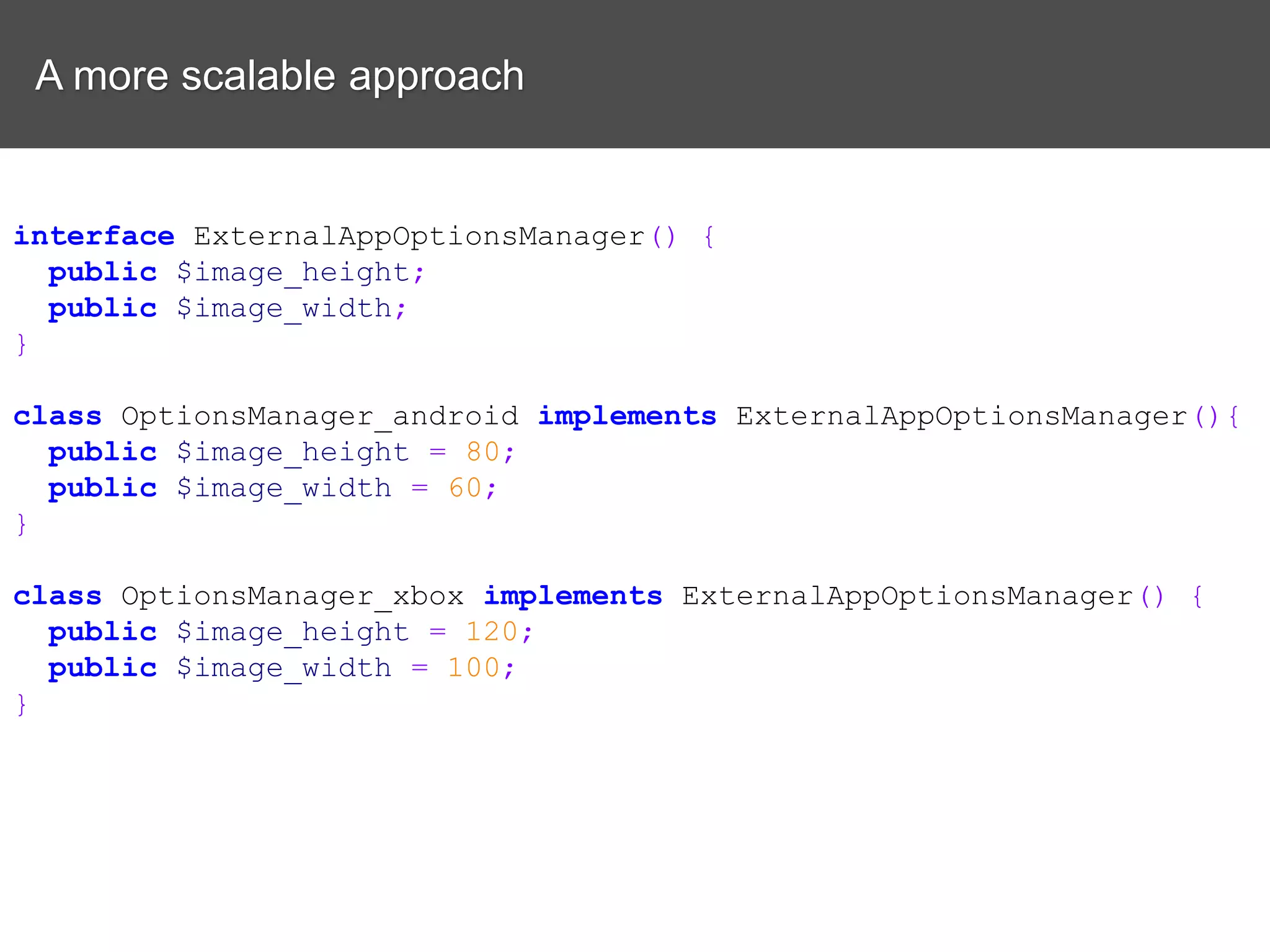
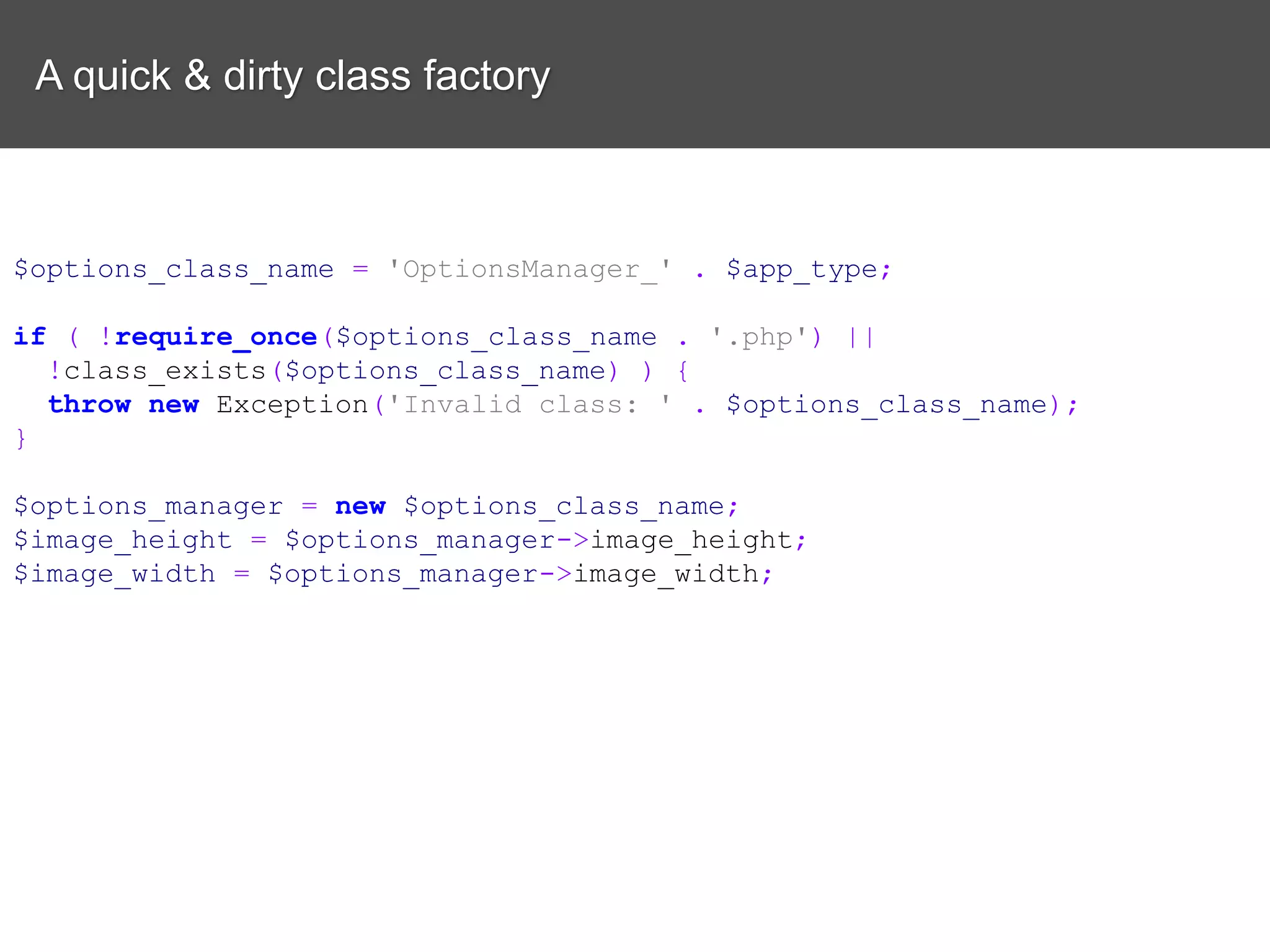
![Conditional objects if ( $item_type == 't_shirt' ) { if ( $_SESSION['shipping_provider'] == 'USPS' ) { $base_price = 3.00; if ( $_SESSION['shipping_method'] == 'first_class' ) { include( 'usps_funcs.php' ); $real_rate = usps_get_rate( $_SESSION['shipping_method'], $item_weight ); $final_rate = $base_price + $real_rate; } } else if ( $_SESSION['shipping_provider'] == 'UPS' ) { $base_price = 3.00; if ( $_SESSION['shipping_method'] = '2_day' ) { include( 'ups_funcs.php' ); $real_rate = ups_get_rate( $_SESSION['shipping_method'], $item_weight ); } } // and so forth....](https://image.slidesharecdn.com/drupaldelphia2014-140913103509-phpapp02/75/Coding-for-Scale-and-Sanity-27-2048.jpg)
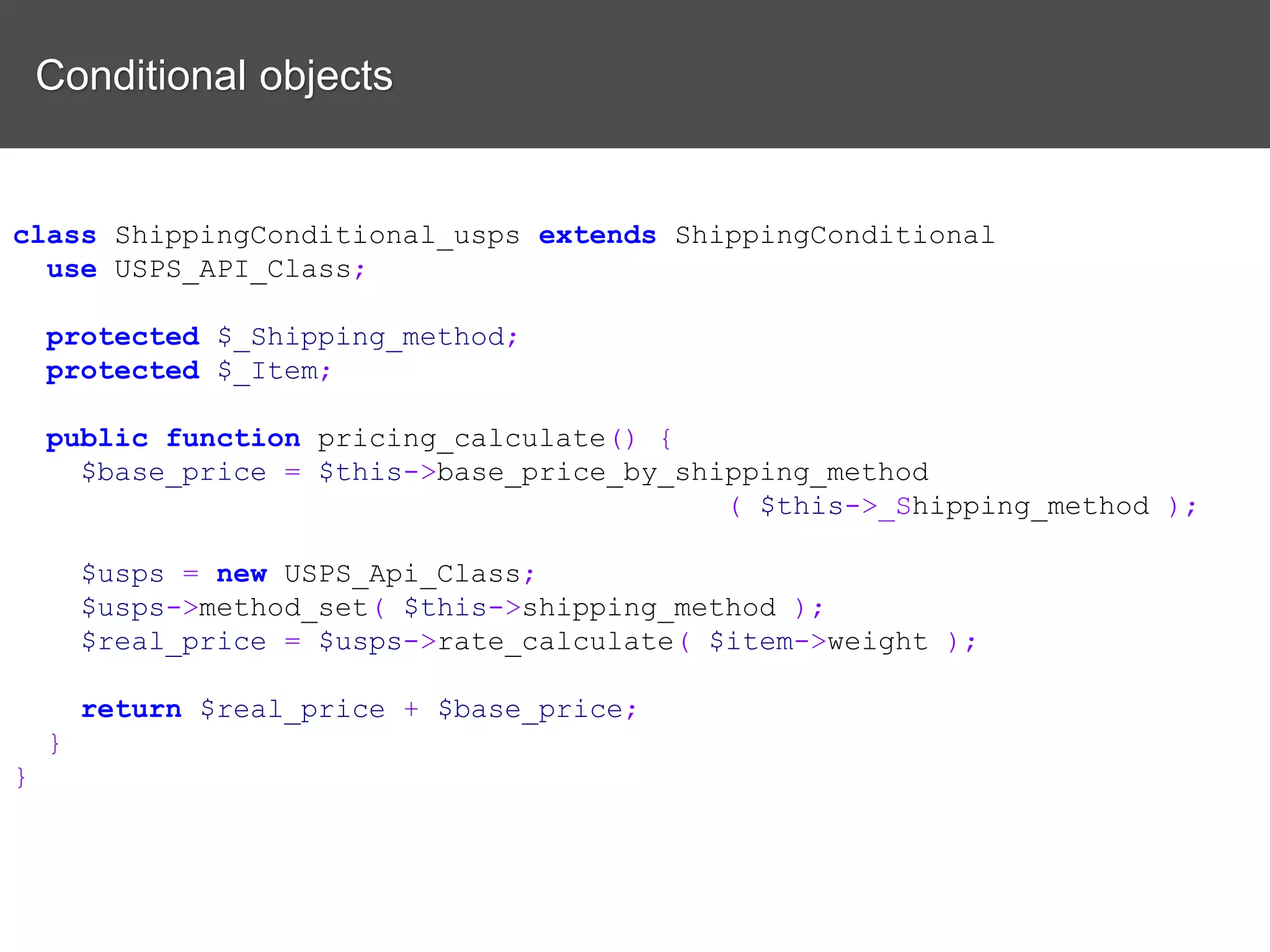
![Conditional objects if ( $item_type == 't_shirt' ) { if ( $_SESSION['shipping_provider'] == 'USPS' ) { $base_price = 3.00; if ( $_SESSION['shipping_method'] == 'first_class' ) { include( 'usps_funcs.php' ); $real_rate = usps_get_rate( $_SESSION['shipping_method'], $item_weight ); $final_rate = $base_price + $real_rate; } } else if ( $_SESSION['shipping_provider'] == 'UPS' ) { $base_price = 3.00; if ( $_SESSION['shipping_method'] = '2_day' ) { include( 'ups_funcs.php' ); $real_rate = ups_get_rate( $_SESSION['shipping_method'], $item_weight ); } } // and so forth....](https://image.slidesharecdn.com/drupaldelphia2014-140913103509-phpapp02/75/Coding-for-Scale-and-Sanity-29-2048.jpg)
![A rewrite $shipping_class_name = "ShippingConditional_{$item_type}"; if ( !class_exists($shipping_class_name) ) { throw new InvalidArgumentException( "Invalid shipping class name: {$shipping_class_name}" ); } $shipping_obj = new $shipping_class_name; $shipping_obj->shipping_method_set($_SESSION['chosen_shipping_method']); $shipping_obj->item_set ( $cart_items[$j] ); $shipping_price = $shipping_obj->pricing_calculate();](https://image.slidesharecdn.com/drupaldelphia2014-140913103509-phpapp02/75/Coding-for-Scale-and-Sanity-30-2048.jpg)
